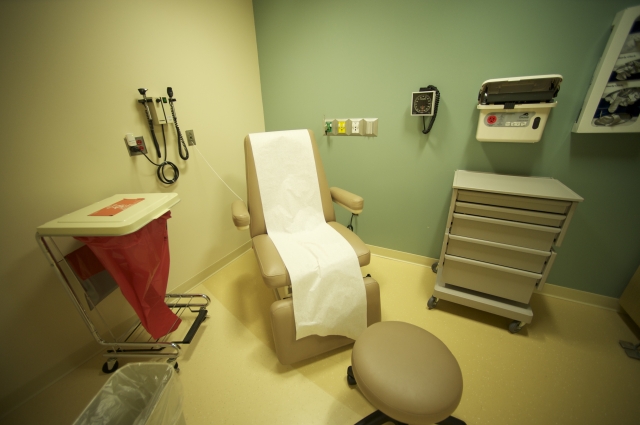 One of the worst things I have to do as a doctor is break bad news to a patient. Whether I have to tell someone they have heart disease, diabetes, or a problem with their prostate, it’s always difficult.
One of the worst things I have to do as a doctor is break bad news to a patient. Whether I have to tell someone they have heart disease, diabetes, or a problem with their prostate, it’s always difficult.
Fortunately, most of my patients follow my advice about getting routine screenings. This means that my bad news is usually followed by the good news that we’ve caught a problem early and will be to address it before it does real damage to their health.
Knowing what screening tests to get and when can literally save your life. If you’re a man over 50, the tests I recommend here can catch health problems early when you can easily treat them. Often, if you catch these issues early enough, you can make a full recovery and avoid a lot of pain and suffering.
These Tests Could Save Your Life
Routine tests check for common problems that can lead to even bigger health issues. Your doctor probably runs several of them during your annual physical already. It’s important that you don’t miss any of them. Here is the screening test schedule I recommend to my own patients. Talk to your doctor and make sure you’re up-to-date with your screenings.
Blood Pressure: (Arm cuff test) High blood pressure can damage your arteries increasing your risk of heart disease. If your blood pressure is 130/85 or less then you’re doing okay. You should have your blood pressure checked at least once every other year to make sure it doesn’t change. If your blood pressure is between 130/85 and 140/90, you don’t yet have high blood pressure, but you need to monitor it more closely. Make an appointment to have your blood pressure rechecked in six months.
Cholesterol: (Blood test) High levels of LDL cholesterol and low levels of HDL cholesterol are both risk factors for heart disease. High levels of triglycerides are, too. You should schedule a blood lipid profile to measure these levels once every five years. Ideally you want LDL cholesterol that is lower than 130, HDL cholesterol that is higher than 40 and triglyceride levels that are lower than 150. If your levels fall out of the ideal range, work with your doctor to make diet and exercise changes that can help normalize them. Get rechecked in the next year or two.
Diabetes: (Blood test) To make sure that you aren’t at risk of developing diabetes, you should have your fasting blood sugar levels tested once every three years. This will help you and your doctor see if a problem is developing. If you catch changes in blood sugar early enough, you may be able to make lifestyle changes that will prevent diabetes.
Prostate Cancer: (Digital rectal exam and PSA test) Screening for prostate cancer involves a rectal exam. I know it isn’t fun, but don’t avoid it. You should have a digital rectal exam and a PSA test once a year to make sure your prostate is healthy.
Colon Cancer: (Sigmoidoscopy and stool test) Colon cancer is the second leading cause of cancer deaths in the nation. As you age, you may develop benign polyps within your colon. Over time these polyps can grow and become cancerous. Through testing, your doctor can identify polyps early and remove them before a cancer forms. Also, when you recognize colon cancer early, it is easier to treat. At the age of fifty, you should have a stool occult blood test and a flexible sigmoidoscopy. After that, your doctor should do a stool test at your yearly physical and a flexible sigmoidoscopy every five years.
Glaucoma: (Eye pressure test) Glaucoma is a disease that affects your eyes and can silently steal your vision. An annual visit to the eye doctor is the best way to catch glaucoma early, before your vision becomes damaged and while a full range of treatment options are possible. Your eye doctor will test the pressure in your eyes by doing an air puff test. The test is quick and painless and can save you and your family a lot of heartache.
Skin Cancer: (Visual screening) Men are at higher risk of skin cancer, including deadly melanomas. Skin cancer is almost 100% curable when caught early. A visit to a dermatologist every year or two is a good idea. The dermatologist will do a visual screening of your skin for suspicious moles or blemishes.
Bladder Cancer: (Urine test) Men with a history of smoking are at high risk for bladder cancer. Early bladder cancer doesn’t usually present any symptoms, so testing is the best way to catch it. If you have a history of smoking, have your doctor do a bladder cancer screening at your annual exam. Early treatment for bladder cancer is usually very successful and survival rates are dramatically higher.
By taking just a little bit of time and enduring just a little discomfort to do these routine screenings, you can prevent devastating diseases from taking you by surprise. You’ll live a longer healthier life because of the smart decisions you make now.
